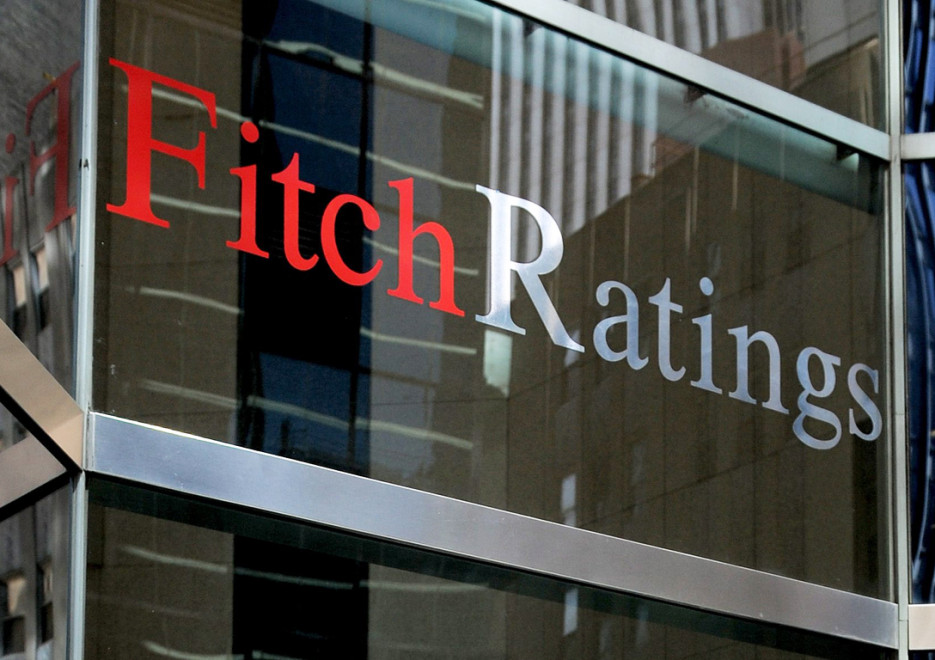Fitch Ratings has upgraded Ukraine's Long-Term Foreign and Local Currency Issuer Default Ratings (IDRs) to 'B-' from 'CCC'. The Outlook is Stable. The issue ratings on Ukraine's long-term senior unsecured foreign- and local-currency bonds are also upgraded to 'B-' from 'CCC', and the sovereign's short-term senior unsecured foreign- and local-currency bonds are upgraded to 'B' from 'C'.
The Country Ceiling has been upgraded to 'B-' from 'CCC' and the Short-Term Foreign- and Local-Currency IDRs to 'B' from 'C'.
The upgrade of Ukraine's IDRs reflects the following key rating drivers and their relative weights:
High
External financing pressures have eased. International reserves have increased by USD2bn over the first 10 months of 2016 to USD15.5bn (around 3.5 months of current external payments), due to bilateral and multilateral support, improvement in some export prices, greater domestic confidence and increased exchange rate flexibility. However, the liquidity ratio remains weak and well below the 'B' median.
The IMF disbursed USD1bn after completing the delayed second review of Ukraine's Extended Fund Facility (EFF) in September, and a third USD1bn US-guaranteed Eurobond issue was placed. Further disbursements from the IMF and other international partners depend on progress in structural reform, which is subject to execution risks, and developments in bilateral relations.
External debt repayments to multilateral and bilateral creditors are manageable, and external market debt amortisations resume only in 2019. Domestic debt roll-over risk is limited, as 91% of the debt stock is held by the central bank and state-owned banks. Some USD1.5bn in cash in Ukraine's treasury provides the sovereign with space to bridge gaps in external disbursements in the short-term.
The current account deficit is expected to widen moderately to 2.5% of GDP in 2016 from 0.2% in 2015 and approach 3% over the forecast period to 2018 However, multilateral and bilateral financing, as well as improving domestic confidence supporting higher net capital inflows, will generate increases in international reserves forecast to average USD2.3bn over 2017-2018.
The macroeconomic policy framework has been strengthened through increased exchange rate flexibility and tight monetary policy. Macroeconomic stability has improved, despite the delay in completing the second EFF review, as reflected by rapidly declining inflation, slower currency depreciation and a mild growth recovery.
Inflation is forecast to average 14.9% in 2016, down from 48.5% in 2015, but well above the 4.6% 'B' median. The National Bank of Ukraine (NBU) is working towards putting in place an inflation-targeting regime that seeks to gradually reduce inflation to 5% by 2019, a goal that depends on coordination with fiscal policy and maintaining policy credibility.
Ukraine's 'B-' IDRs also reflect the following key rating drivers:
General government debt is high, and Fitch forecasts debt to increase to 74% of GDP (89% including guarantees) in 2016, from 67% in 2015. After a sharp narrowing in the general government deficit in 2015, the challenge for authorities is to anchor fiscal gains, taking advantage of external bond debt rescheduling.
Fitch expects the general government to meet its 3.7% of GDP deficit target (3.9% including Naftogaz) for 2016. The 2017 budget targets a 3% deficit, reflecting improvement in tax revenues. Failure to keep current expenditure pressures in check and to address the public pension deficit, combined with a proposed increase in minimum wage, are risks for the government's plans to gradually shrink the deficit to 2.3% by 2019. Fitch forecasts a general government deficit of 3.7% of GDP in 2017.
Political risks remain significant, but near-term political volatility has eased. The slim majority government of PM Volodomyr Groysman has hit structural benchmarks to complete the EFF review in September. Continued progress with the EFF will depend on domestic and intra-government political support and continued conservative policy-making. Ukraine has never completed an IMF programme.
Growth is forecast to accelerate to 2.5% in 2017 and 3% in 2018, from a projected 1.1% in 2016. While investment has supported growth in 2016, it is likely to remain low relative to 'B'-rated peers, highlighting the importance of improving the business environment. Privatisation has yet to gain momentum. The unresolved conflict in eastern Ukraine will continue to weigh on growth performance and expectations.
The banking sector has stabilised, but is weak with low capitalisation levels and non-performing loans of over 50%, and poses a risk to economic stability and constrains economic recovery. Banks continue to improve capitalisation levels after an asset quality review in 2015. State-owned banks may see additional government injections, albeit at a lower level than in previous years.
SOVEREIGN RATING MODEL (SRM) and QUALITATIVE OVERLAY (QO)
Fitch's proprietary SRM assigns Ukraine a score equivalent to a rating of 'CCC' on the Long-Term Foreign Currency IDR scale.
Fitch's sovereign rating committee adjusted the output from the SRM to arrive at the final Long-Term Foreign Currency IDR by applying its QO, relative to rated peers, as follows:
Macro: +1 notch, to reflect Ukraine's strengthened monetary and exchange rate policy which will likely support improved macroeconomic performance and domestic confidence. Increased exchange rate flexibility allows to the economy to absorb shocks without depleting reserves.
Fitch's SRM is the agency's proprietary multiple regression rating model that employs 18 variables based on three-year centred averages, including one year of forecasts, to produce a score equivalent to a Long-Term Foreign Currency IDR. Fitch's QO is a forward-looking qualitative framework designed to allow for adjustment to the SRM output to assign the final rating, reflecting factors within our criteria that are not fully quantifiable or not fully reflected in the SRM.
RATING SENSITIVITIES
The main factors that could, individually or collectively, lead to a negative rating action are:
-Re-emergence of external financing pressures, loss of confidence and increased macroeconomic instability stemming from delays to disbursements from, or the collapse of, the IMF programme.
-External or political/geopolitical shock that weakens macroeconomic performance and Ukraine's fiscal and external position.
The main factors that could, individually or collectively, lead to positive rating action are:
-Increased external liquidity and external financing flexibility.
-Sustained fiscal consolidation leading to improved debt dynamics.
-Improved macroeconomic performance
KEY ASSUMPTIONS
- Fitch expects neither resolution of the conflict in eastern Ukraine nor escalation of the conflict to the point of compromising overall macroeconomic performance.
- Fitch assumes the status of the outstanding USD3bn debt with Russia does not create risks for Ukraine's sovereign debt service and access to external financing.






